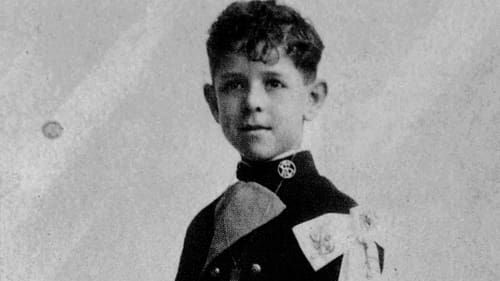
Self - Host / Filmmaker
The early days of the future genius of Spanish cinema Luis García Berlanga, from his birth in Valencia in 1921 to his departure to Madrid in 1947 to become a filmmaker.

Editor
The early days of the future genius of Spanish cinema Luis García Berlanga, from his birth in Valencia in 1921 to his departure to Madrid in 1947 to become a filmmaker.

Writer
The early days of the future genius of Spanish cinema Luis García Berlanga, from his birth in Valencia in 1921 to his departure to Madrid in 1947 to become a filmmaker.

Producer
The early days of the future genius of Spanish cinema Luis García Berlanga, from his birth in Valencia in 1921 to his departure to Madrid in 1947 to become a filmmaker.

Director
The early days of the future genius of Spanish cinema Luis García Berlanga, from his birth in Valencia in 1921 to his departure to Madrid in 1947 to become a filmmaker.

Cinematography
Throughout the streets of Huelva, a man with his guitar has been disambiguating for years, day and night he goes out into the streets to make a living asking for money in bars and terraces. His guitar almost never has the six strings, his hands are dirty, his mind long ago could not stand the life that he had to live, and he continues as he can stuck to that guitar with which he expresses himself continuously, indefatigable. That vagabond, an omnipresent street artist, is the "Niño Miguel", considered by many to be the best guitarist in the history of flamenco, a genius who revolutionized the guitar with only two records in the 70s, a source of inspiration for all other guitarists... a guitarist of guitarists, a living legend, a mystery, a misunderstood genius, excluded from society: The shadow of the strings.

Writer
Throughout the streets of Huelva, a man with his guitar has been disambiguating for years, day and night he goes out into the streets to make a living asking for money in bars and terraces. His guitar almost never has the six strings, his hands are dirty, his mind long ago could not stand the life that he had to live, and he continues as he can stuck to that guitar with which he expresses himself continuously, indefatigable. That vagabond, an omnipresent street artist, is the "Niño Miguel", considered by many to be the best guitarist in the history of flamenco, a genius who revolutionized the guitar with only two records in the 70s, a source of inspiration for all other guitarists... a guitarist of guitarists, a living legend, a mystery, a misunderstood genius, excluded from society: The shadow of the strings.

Director
Throughout the streets of Huelva, a man with his guitar has been disambiguating for years, day and night he goes out into the streets to make a living asking for money in bars and terraces. His guitar almost never has the six strings, his hands are dirty, his mind long ago could not stand the life that he had to live, and he continues as he can stuck to that guitar with which he expresses himself continuously, indefatigable. That vagabond, an omnipresent street artist, is the "Niño Miguel", considered by many to be the best guitarist in the history of flamenco, a genius who revolutionized the guitar with only two records in the 70s, a source of inspiration for all other guitarists... a guitarist of guitarists, a living legend, a mystery, a misunderstood genius, excluded from society: The shadow of the strings.







